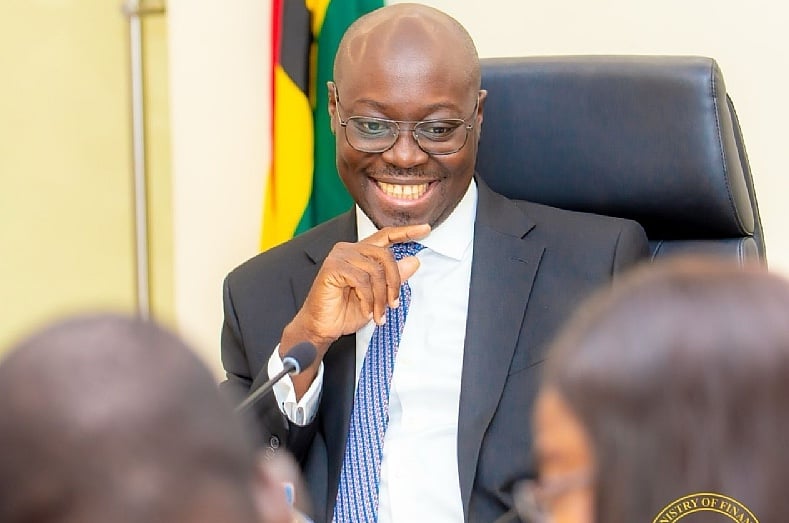The 2025 Budget Statement and Economic Policy, presented to Parliament on March 11, 2025, by Finance Minister Dr. Cassiel Ato Forson, revealed a 5.7% GDP growth for the year 2024. This growth, surprisingly robust, was primarily attributed to the mining and quarrying sector, including the controversial practice of illegal small-scale mining, known as “galamsey.” While the contribution of galamsey to this growth raises concerns about environmental degradation and sustainable practices, it underscores the significant role the mining sector plays in Ghana’s economic performance. The Minister’s statement highlighted the need for a deeper analysis of the sector’s contribution, distinguishing between legal and illegal activities and their long-term implications for the economy and the environment. This acknowledgment signaled a potential shift towards addressing the complex challenges associated with galamsey while harnessing the potential of legal mining for sustainable economic development.
The International Monetary Fund (IMF), in a subsequent mission to Accra from April 2 to April 15, 2025, corroborated the government’s assessment of Ghana’s economic performance. Stéphane Roudet, the IMF Mission Chief, confirmed that Ghana’s economic growth exceeded expectations in 2024, largely driven by the strong performance of the mining and construction sectors. This independent confirmation reinforced the significance of these sectors in propelling Ghana’s economic recovery and growth. The IMF mission, part of Ghana’s ongoing engagement under the Extended Credit Facility (ECF) program, provided an external and expert perspective on the country’s economic trajectory, adding credibility to the government’s report on the 2024 performance.
The IMF’s analysis provided further details into the factors contributing to Ghana’s positive economic performance. Roudet specifically highlighted the significant improvement in Ghana’s external position, attributing it to strong export performance, particularly in gold, and increased remittances. The surge in gold exports, a key component of the mining sector, further solidified the sector’s crucial role in boosting Ghana’s economic standing. Increased remittances, indicative of diaspora contributions to the national economy, also played a significant role in enhancing the country’s external position, highlighting the importance of these inflows in supporting economic stability and growth. The confluence of these factors – robust mining activity, increased exports, and higher remittances – created a positive feedback loop, strengthening Ghana’s economic outlook.
Beyond the immediate economic gains, the IMF mission also highlighted the impact of this positive performance on Ghana’s international reserves. Roudet noted that the accumulation of international reserves had far exceeded the targets set under the ECF-supported program. This achievement signifies a strengthening of Ghana’s financial buffers, enhancing the country’s resilience against external shocks and promoting macroeconomic stability. The exceeding of ECF targets demonstrates Ghana’s progress in managing its finances and adhering to the program’s objectives, which are crucial for securing continued support and fostering confidence in the country’s economic prospects.
However, the acknowledgment of galamsey’s contribution to economic growth poses a significant dilemma. While the economic benefits are evident, the environmental and social costs associated with illegal mining activities cannot be ignored. The unregulated nature of galamsey leads to deforestation, water pollution, and land degradation, threatening the livelihoods of communities and posing long-term risks to sustainable development. Addressing this challenge requires a multifaceted approach that balances economic development with environmental protection. This includes strengthening regulatory frameworks, promoting responsible mining practices, and providing alternative livelihood opportunities for those involved in illegal mining activities.
The 2024 economic performance, while encouraging, presents Ghana with both opportunities and challenges. The strong growth, driven by mining and construction, provides a foundation for continued economic progress. However, the reliance on extractive industries, particularly the contribution of galamsey, raises concerns about sustainability. Moving forward, Ghana must prioritize sustainable development by implementing policies that promote environmentally responsible mining practices, diversify its economy, and invest in human capital. This will ensure long-term economic growth and prosperity while mitigating the environmental and social risks associated with unsustainable practices. The findings of the IMF mission underscore the importance of strategically leveraging the current economic momentum to pave the way for a more sustainable and inclusive future for Ghana.


